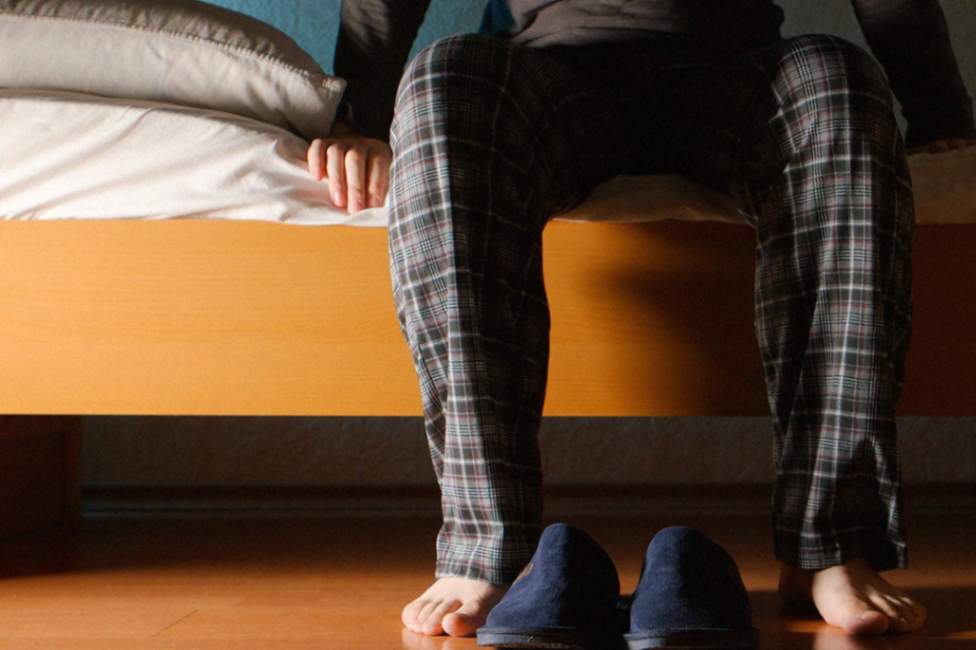There’s never a bad time for men to take a proactive approach to prostate health. But the truth is the majority of males put off worrying about this all-important gland until reaching 50 years old—an arbitrary milestone that can encourage complacent behavior.
Unfortunately, men who haven’t visited a medical professional for preventive screenings may one day begin exhibiting a range of seemingly innocuous problems that could actually be an indicator of something far more troubling.
That little bit of hesitation just before your urine stream starts?
You might only be in your 30s, but it could be a sign that your prostate is beginning to enlarge.
The middle of the night trips to the bathroom in your 40s?
That could be an indication that nodules are beginning to grow on your prostate, causing over-stimulation, forcing more urine into your bladder.
Then suddenly you’re 50 or 60 years old and you have a full-blown prostate problem.
What Is The Prostate Anyway?
The prostate gland is about the size and shape of a walnut. It’s located below the bladder, surrounding the urethra, the tube through which urine flows from the bladder out of the body. When the prostate gland grows bigger—which happens to virtually every man as he ages—it can squeeze the urethra and make it difficult to pass urine.
Over time, this constant pressure can weaken the bladder muscles, and as a result the bladder will no longer be able to empty itself properly, constantly leaving behind some residual urine.
Are Prostate Problems Inevitable?
American men are living longer and the prospect of experiencing prostate problems is very high:
- Age 31-40: one in 12
- Age 51-60: about one in two
- Over age 80: more than eight in 10
Most men will wait for symptoms of prostate problems to escalate before electing to do anything about it. It is considered inevitable for men to experience swelling of the prostate gland as they age. This condition is called benign prostatic hypertrophy (BPH). BPH normally manifests as slowed urination and impaired sexual climax.
BPH is also a common reason why older men lose sleep because their swollen prostate forces them to repeatedly get out of bed in the middle of the night to urinate. And lost sleep weakens the immune system and can cause memory problems.
What Are The Warning Signs Of A Prostate Problem?
As a man gets older, he may experience dribbling and residual urine flow even though his bladder feels completely empty. As the prostate gland swells, it impinges upon the urethra—the exit tube for urine—to the point where normal, comfortable urination is completely thwarted.
The prostate converts testosterone into dihydrotestosterone (DHT), which stimulates cell growth in the tissue that lines the prostate gland. This is the major cause of an enlarged prostate. There is a small amount of estrogen present in men that may influence prostate enlargement. As men age, testosterone levels drop and estrogen increases, which may trigger an increase in the prostate growth rate.
Here are the common symptoms of a prostate problem:
- A weak or slow urinary stream
- A feeling of incomplete bladder emptying
- Difficulty starting urine flow
- Frequent urination
- Urgency to urinate
- Getting up frequently at night to urinate
- A urine stream that starts and stops
- Straining to urinate
How Can You Promote A Healthy Prostate?
There are medications that inhibit 5-alpha reductase (5-AR), an enzyme in the body that triggers prostate growth. However, there are also several botanicals that can inhibit 5-AR release, such as resveratrol, fisetin, and lignans, to name a few prominent molecules.
Scientific studies have also identified several nutrients as helpful in promoting a healthy prostate:
- Vitamin C
- Vitamin D
- Vitamin E
- Vitamin B6
- Zinc
- Phosphorus
- Selenium
- Lycopene
- Beta Sitosterol
- Quercetin
- Stinging Nettles
- Saw Palmetto
- Pygeum
- Pumpkin Seed Oil
So, really, there is no reason to gently give in to prostate enlargement and the subsequent health issues. Yes, the prostate will change size as you age. But you can get a handle on how fast and how much it grows. And in turn, that could lead to a healthier urinary tract, better sexual experiences, and perhaps a good night’s sleep.









